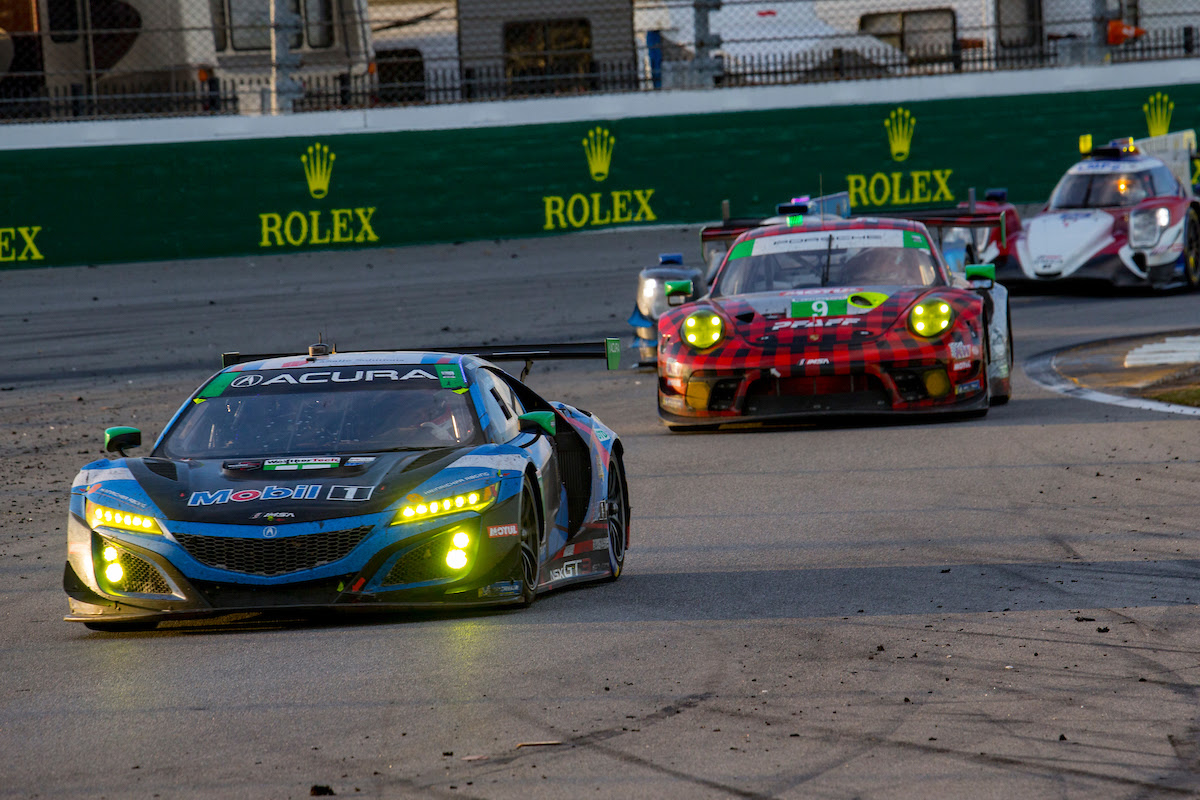
GT3 / 27 January 2020
Top-10 results for both NSX GT3 Evos at Daytona 24 Hours
The NSX GT3 Evo recorded a double-finish at a gruelling Daytona 24 Hours as the IMSA Weathertech Sports Car Championship kicked off in Florida, with both Meyer Shank Racing-run machines making the top 10 of the closely-fought GTD class.
Having qualified the Heinricher Racing-entered car an excellent third, reigning category champion Trent Hindman put in a tremendous opening stint and handed the car over to Misha Goikhberg in second place, just a handful of seconds off the lead.
The pair, plus Alvaro Parente and AJ Allmendinger, remained solidly in the top 10 throughout the first half of the race, but a precautionary brake change just beyond half-distance dropped the car a lap behind the leaders.
But as the race ran remarkably light on caution periods - just four during the whole 24 hours - there was no opportunity to regain the lost time through strategy.
Their pace compounded by a Balance of Performance that left the car 25kg heavier and less powerful than at the official test a few weeks earlier, the quartet were trapped in position and finished eighth.
The sister MSR machine, which featured Hindman's title-winning co-driver from 2019, Mario Farnbacher, ran easily inside the top 10 during the opening phase with Matt McMurry - who qualified the car ninth - at the wheel.
Full-season driver Farnbacher, together with 'Endurance' racers Shinya Michimi and Jules Gounon, kept the car in contention into night, recovering from a pitlane speeding penalty to climb as high as fourth.
But a 25-minute stint behind the wall to repair a damaged splitter and nose area cost the car any chance of a result and dropped it to 15th. The crew recovered superbly to bounce back to 10th and secure crucial championship points.
Both cars were competing as part of the NSX GT3 Customer Racing Programme; a global collaborative project with JAS Motorsport responsible for assembly of all cars.
Honda Performance Development (HPD) and M-TEC handle sales and technical support in North America and Japan respectively, with JAS responsible for these areas across the rest of the world.
.jpg)